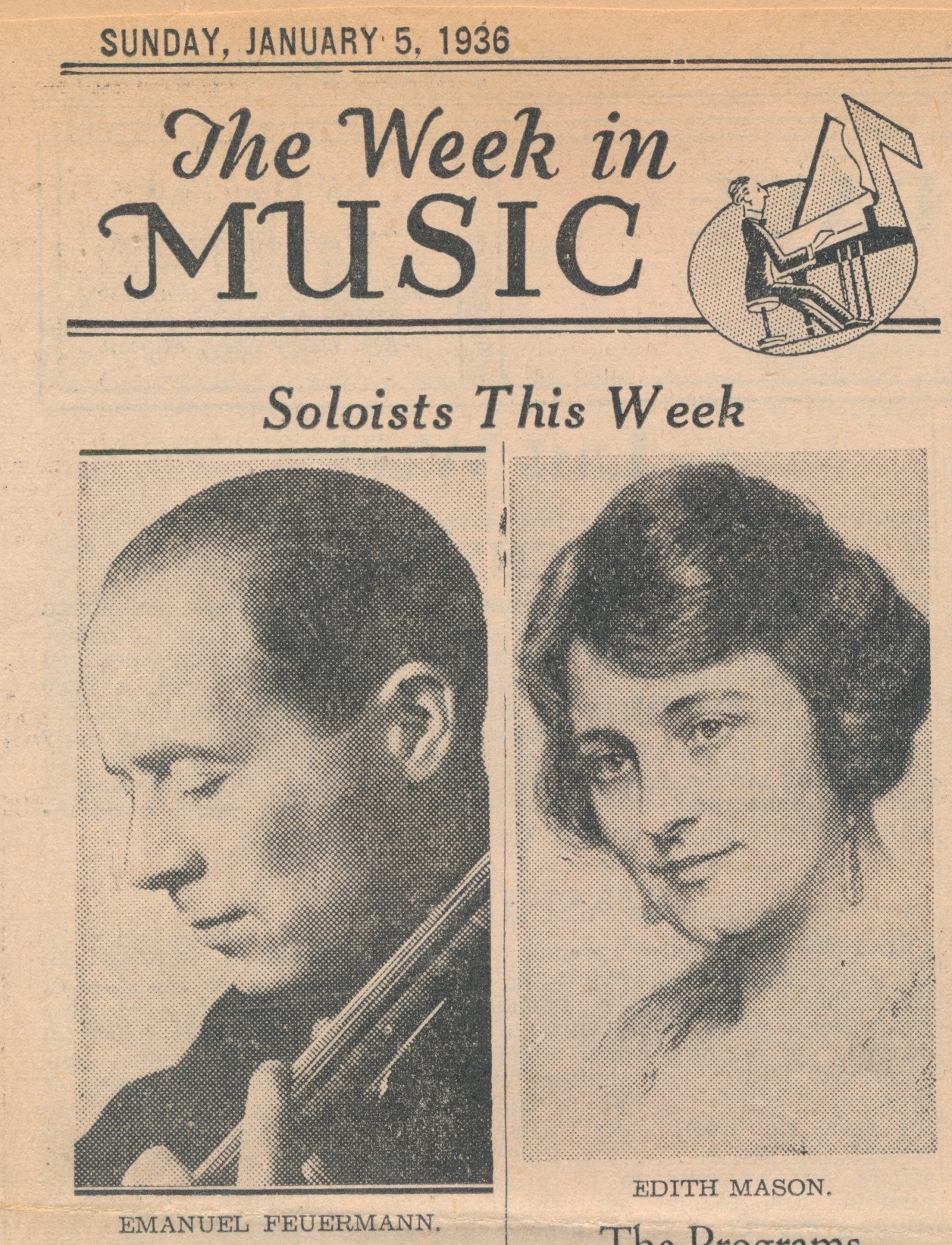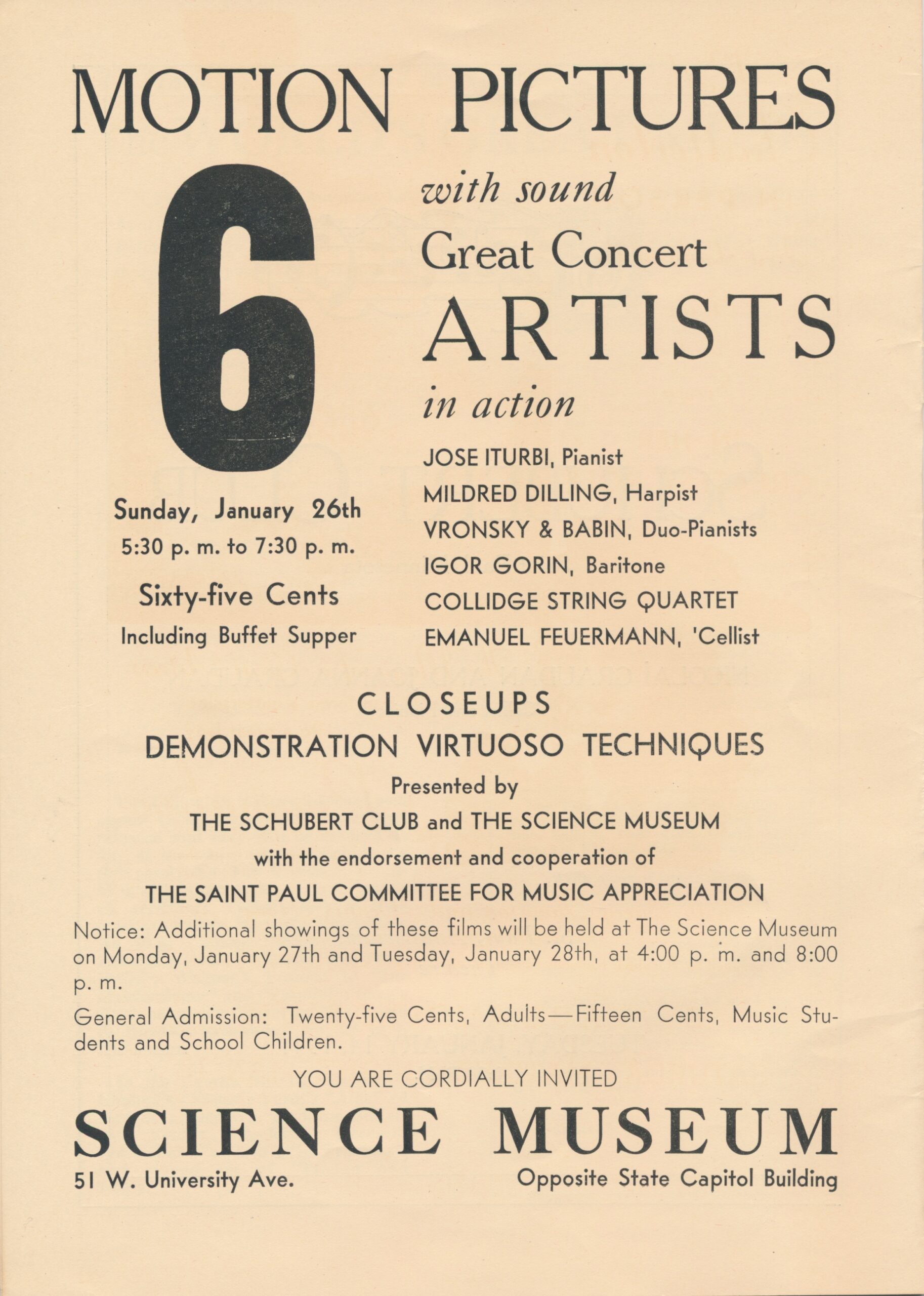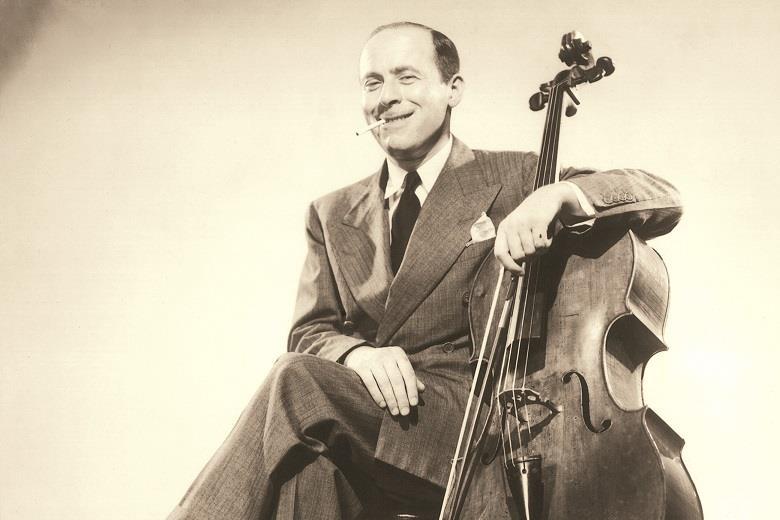Emanuel Feuermann
In a brilliant but tragically short career – mainly in Germany, until the Nazi regime dismissed him from his position at the Berlin conservatory in 1933, and in the US, where he emigrated five years later – Emanuel Feuermann took the art of cello playing to new heights. One of his musical partners, pianist Arthur Rubinstein, called him the greatest cellist of all time. Eugene Ormandy declared that his cello revealed to the conductor what music really means. This film clip, the only one of Feuermann that survives, was made in 1939, three years before his death at the age of 39:
A brief but invaluable appreciation in Strings magazine has links to Feuermann’s 1935 recording of the Haydn D major Concerto and his Bloch Schelomo from 1940:
In 1937, the year after his Schubert Club appearance, Feuermann recorded the Beethoven A major Cello Sonata in London with Myra Hess:
The 1939 recording of the Brahms Double Concerto by Feuermann, violinist Jascha Heifetz and Ormandy conducting the Philadelphia Orchestra is still a benchmark for this work:
On this sonically first-rate recording of a live concert at Carnegie Hall in 1940, Feuermann’s artistry is richly displayed in the Cello Concerto by German composer-pianist Eugen d’Albert, a Romantic rarity of which he was particularly fond:
Artist note by Richard Evidon
From the Schubert Club Archive:

Program from Feuermann’s 1935 concert
Click to View Full Image
A local newspaper clipping from 1935 announcing Feuermann’s concert
Click to View Full Image
Five years after his Schubert Club debut, Feuermann was part of a motion picture co-presentation by Schubert Club and the Science Museum featuring live performances by several prominent domestic and international classical musicians
Click to View Full Image

